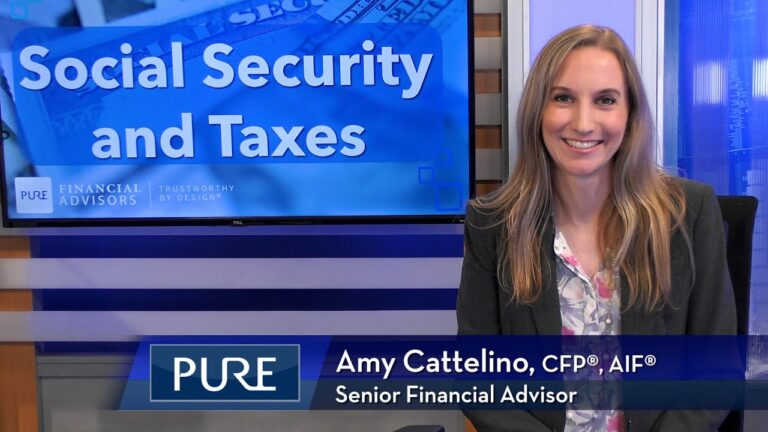Crypto for beginners: what should you consider before you do any cryptocurrency trading? Brian Perry, CFP®, AIF®, Executive Vice President and Chief Investment Officer at Pure Financial Advisors outlines the crypto pros and cons. Using the five-year returns of Bitcoin to illustrate the excessively high volatility of digital currencies, Brian discusses whether cryptocurrency effectively functions as an inflation hedge, diversification tool, or cash, and how much exposure to the cryptocurrency market you might consider for your investment portfolio.
Takeaways for your cryptocurrency investing strategy:
- Position sizing matters
- Blockchain and decentralized finance (defi) are likely to have significant impacts in years to come
- Owning a single coin or token (even Bitcoin) may represent an overly concentrated position
- Pure prefers broad-based “shotgun” exposure to crypto, defi, and the blockchain, rather than a “rifle” approach
- Continue to monitor the crypto space for new products and vehicles that provide broad-based exposure to a wide range of cryptocurrency products
Thinking of adding cryptocurrency to your investment portfolio? Schedule a free financial assessment:
Subscribe to our YouTube channel.
IMPORTANT DISCLOSURES:
• Investment Advisory and Financial Planning Services are offered through Pure Financial Advisors, LLC, a Registered Investment Advisor.
• Pure Financial Advisors LLC does not offer tax or legal advice. Consult with your tax advisor or attorney regarding specific situations.
• Opinions expressed are subject to change without notice and are not intended as investment advice or to predict future performance.
• Investing involves risk including the potential loss of principal. No investment strategy can guarantee a profit or protect against loss in periods of declining values.
• All information is believed to be from reliable sources; however, we make no representation as to its completeness or accuracy.
• Intended for educational purposes only and are not intended as individualized advice or a guarantee that you will achieve a desired result. Before implementing any strategies discussed you should consult your tax and financial advisors.
CFP® – The CERTIFIED FINANCIAL PLANNER™ certification is by the Certified Financial Planner Board of Standards, Inc. To attain the right to use the CFP® designation, an individual must satisfactorily fulfill education, experience and ethics requirements as well as pass a comprehensive exam. Thirty hours of continuing education is required every two years to maintain the designation.
AIF® – Accredited Investment Fiduciary designation is administered by the Center for Fiduciary Studies fi360. To receive the AIF Designation, an individual must meet prerequisite criteria, complete a training program, and pass a comprehensive examination. Six hours of continuing education is required annually to maintain the designation.
CFA® charter – Chartered Financial Analyst® Chartered Financial Analyst® designation was first introduced in 1963. The CFA Program contains three levels of curriculum, each with its own 6-hour exam. Candidates must meet enrollment requirements, self-attest to professional conduct, complete the approx. 900 hours of self-study, and successfully pass all three levels to use the designation.The program curriculum increases in complexity as you move through the three levels: Level I: Focuses on a basic knowledge of the ten topic areas and simple analysis using investment tools Level II: Emphasizes the application of investment tools and concepts with a focus on the valuation of all types of assets Level III: Focuses on synthesizing all of the concepts and analytical methods in a variety of applications for effective portfolio management and wealth planning CFA Institute does not endorse, promote, or warrant the accuracy or quality of Pure Financial Advisors. CFA® and Chartered Financial Analyst® are registered trademarks owned by CFA Institute. AIF® – Accredited Investment Fiduciary designation is administered by the Center for Fiduciary Studies fi360. To receive the AIF Designation, an individual must meet prerequisite criteria, complete a training program, and pass a comprehensive examination. Six hours of continuing education is required annually to maintain the designation.












